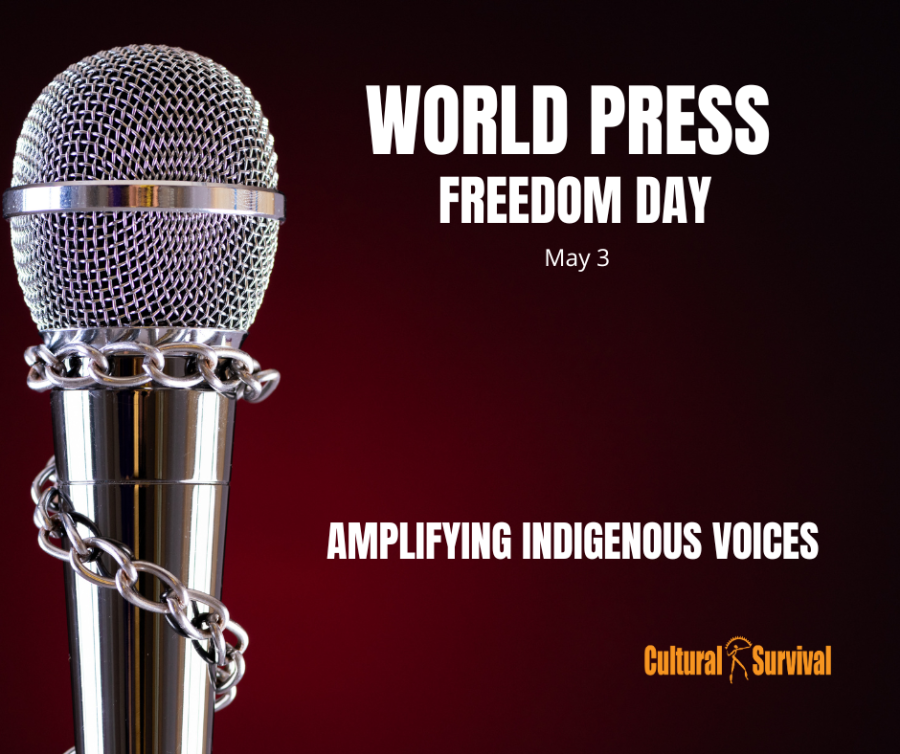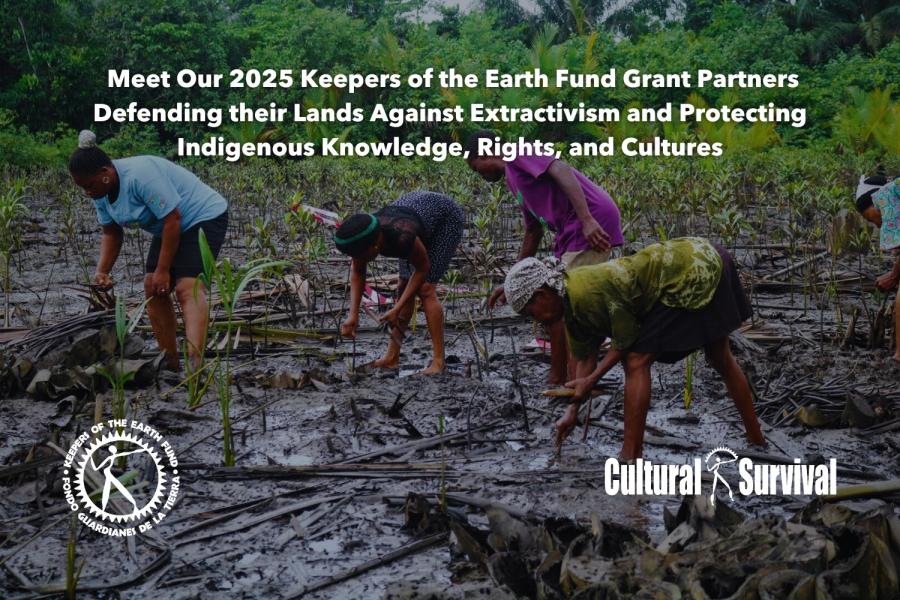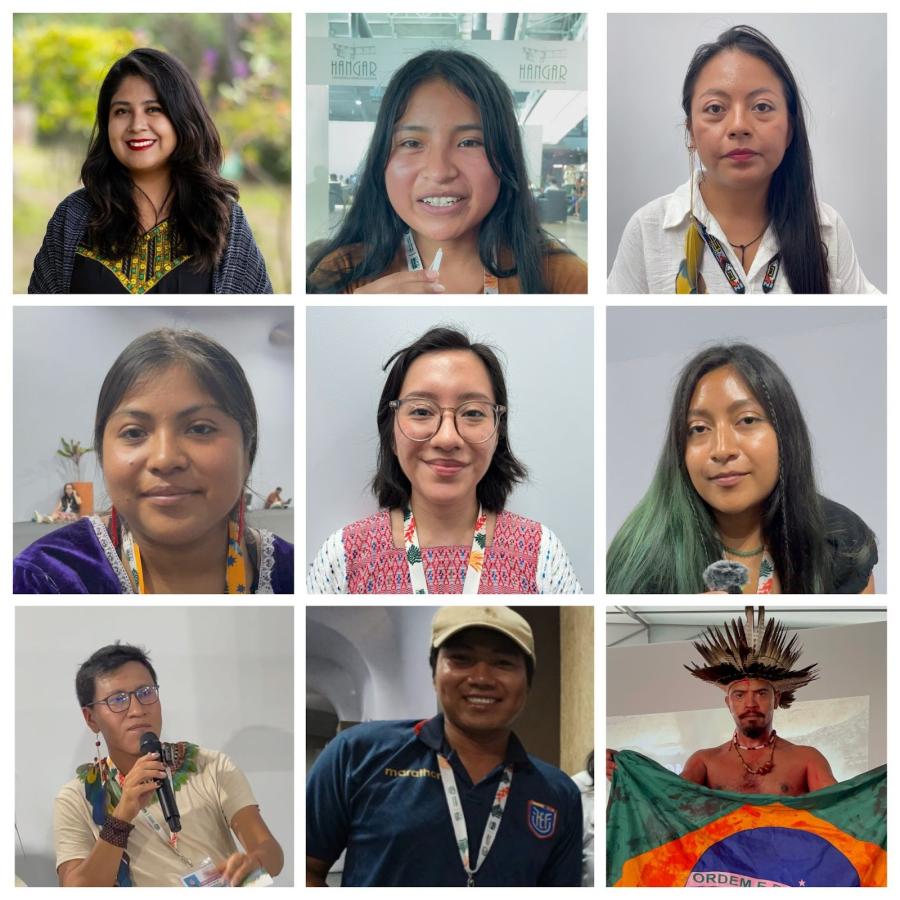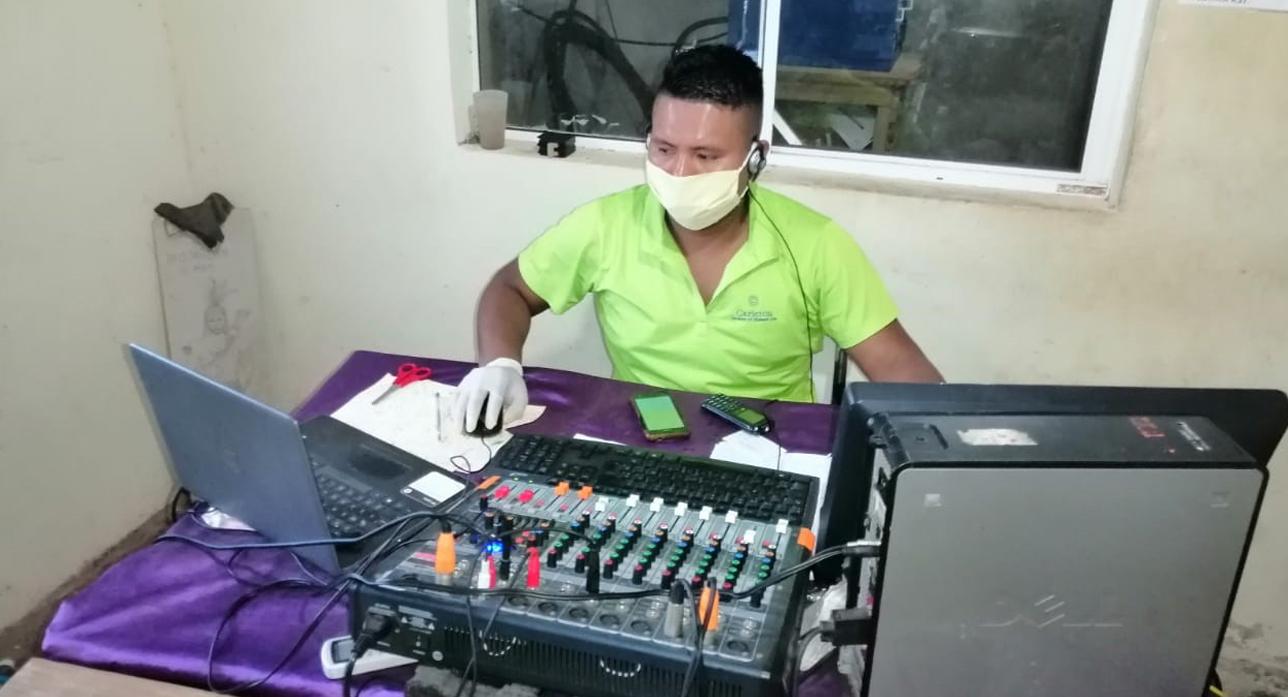
Cultural Survival recognizes and supports Indigenous community radio stations that inform and support their communities in their own languages with culturally relevant information to prevent the spread of COVID-19. Many community radio stations are continuing the responsibilities despite the risks that this pandemic represents for journalists and broadcasters. Indigenous community radio stations are often the only lifelines during emergencies and they have proven to be essential.
In April and May, Cultural Survival funded 17 grants to 21 Indigenous community radio stations in Mexico, Costa Rica, Belize, El Salvador, Guatemala, Honduras, and Nicaragua, and Ecuador from our Community Media Program COVID-19 Emergency Fund. These grants aim to support radio productions on prevention measures and community coping mechanisms in the face of COVID-19 in Indigenous languages and Spanish.
Stations' topics of interests for programming include: are community participation and decision making in the face of COVID-19; access to water; sanitation, economic and food sovereignty; exchange of products (barter) and community markets; food banks; planting basics; community and mental health; preventing the spread of the virus; taking care of elders and children; artistic expressions; news, including relevant analysis, and shedding light on corruption during the COVID-19 pandemic.
Our grant partners are:
- Radio Cultural la Voz de Talamanca (Bri Bri), Amubri, Limón, Costa Rica
- Radio Cultural Maleku (Maleku), Guatuso, Alajuela, Costa Rica
- Hamalali NGC Radio (Garifuna), Dangriga, Belize
- Radio Cultural de Boruca (Boruca), Puntarena, Costa Rica
- Radio La Voz de Mi Gente (Nahuat pipil), Tacuba, Ahuachapan, El Salvador
- Radio Acodim Nan Pix (Maya Mam), San Idelfonso Ixtahuacan, Guatemala
- Radio Comunitaria La voz de Racantacaj (Maya K’iche’), Sololá, Tz’utujil; Guatemala
- Radio Nimlajacoc (Maya Q’eqchi’), Alta Verapaz, Guatemala
- Radio Voz Lenca AM (Lenca), Consejo Cívico De Organizaciones Populares E Indígenas De Honduras - Copinh, Intibucá; Honduras
- Radio Voz Lenca FM (Lenca), Consejo Cívico De Organizaciones Populares E Indígenas De Honduras - Copinh, Intibucá; Honduras
- Radio Guarajambala (Lenca), Consejo Cívico De Organizaciones Populares E Indígenas De Honduras - Copinh, Intibucá, Honduras
- La Voz del Gualcarque (Lenca), Consejo Cívico De Organizaciones Populares E Indígenas De Honduras - Copinh, Intibucá; Honduras
- Radio Guachipilin (Lenca), Consejo Cívico De Organizaciones Populares E Indígenas De Honduras - Copinh, Honduras
- Radio Comunitaria Ji’tontik (Maya Tzeltal), Ocosingo, Chiapas México
- Radio Comunitaria Indígena Estéreo Lluvia Tututepec (Mixteca y Chatino), Oaxaca, México
- Radio “Juchari Uinapekua”(Purépecha), Santa Fe De La Laguna, Michoacan, México
- Radio Jënpoj (Ayuujk), Santa María Tlahuitoltepec, Mixe, Oaxaca, Mexico
- Radio Ximai (Ñhañu), Municipio de Santiago de Anaya, Hidalgo, México
- Radio Yapti Tasba Bila Baikra (The voice of our Mother Earth), (Mayangna-Tuahka and Afro-descendant communities) Bilwi, Puerto Cabezas, Nicaragua
- Radio Yapti Tasba Bila Baikra (The voice of our Mother Earth), (Mayangna-Tuahka and Afro-descendant communities), Bilwi, Waspam, Nicaragua
- Radio Ampara Su (Nación Awa), Ibarra, Ecuador
The support given by Cultural Survival is important for our partners. This fund covers stations’ basic expenses such as electricity, internet, and the per diem of some permanent volunteers. Station leaders have made great efforts to keep their radio on the air, knowing that the State restrictions, aiming to stop the expansion of the COVID-19, have also limited financial support from local communities and businesses for their stations.
“For us, at Ji'tontik Community Radio, the support on COVID-19 has been a relief. Radio production requires resources that increase with the security protocols that we are applying at the radio station to avoid getting infected with the virus. We thank Cultural Survival for the invitation to participate in these coronavirus production campaigns,” says Genoveva López Velázquez, coordinator at Radio Ji'tontik in Chiapas, Mexico.
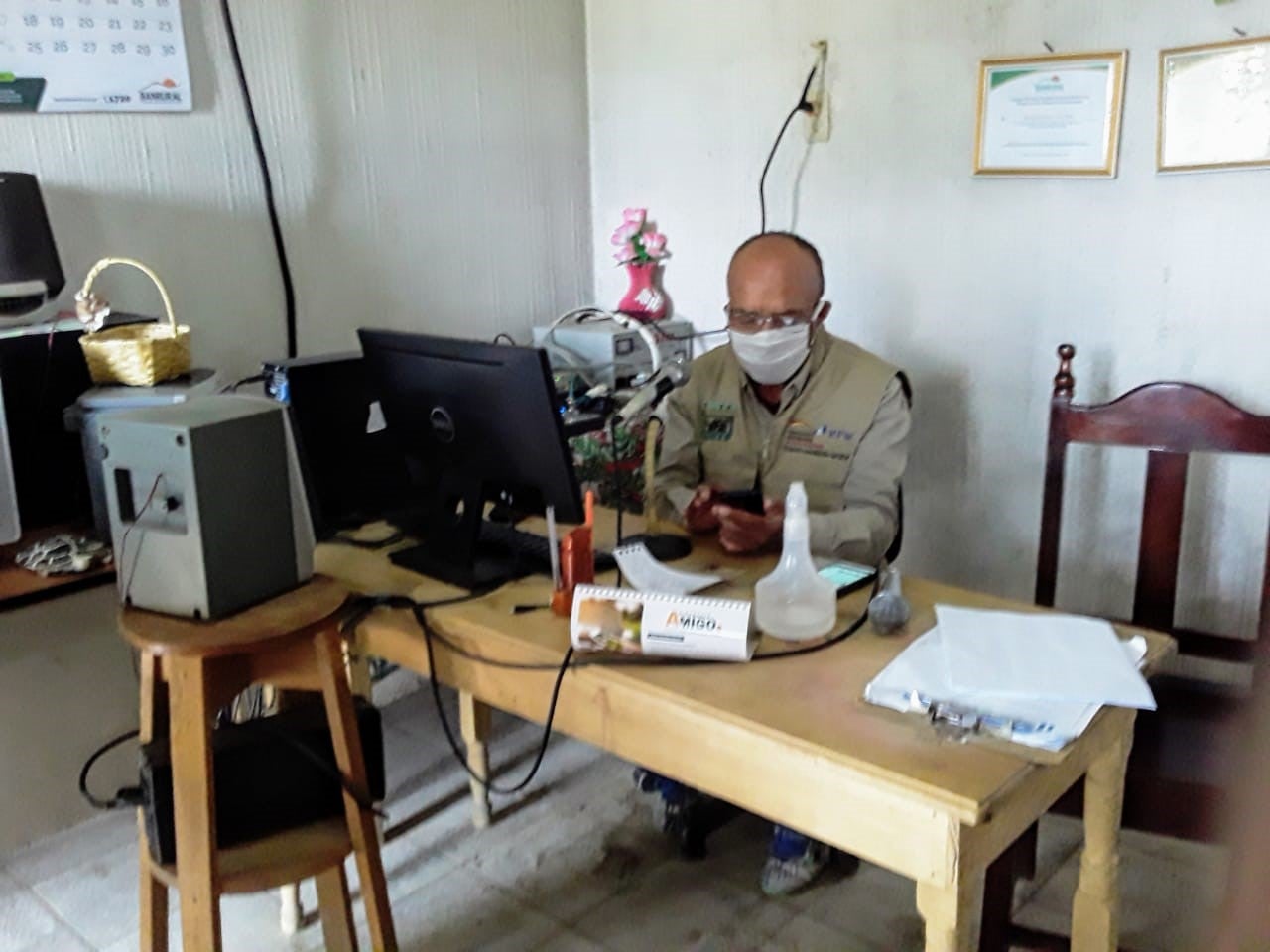
Radio Acodim Nan Pix (Maya Mam), San Idelfonso Ixtahuacan, Guatemala
Rodolfo Urrutia, director of Radio Nimlajacoc in Nimlajacoc, Cobán, Guatemala, highlights “Through the information that has been broadcasted, people are taking precautions more seriously. Since then, fewer people are traveling to the capital of our department. They ask the station how COVID-19 spreads. This is the reason why we insist on broadcasting in our local language about the importance of staying at home and making proper use of masks and hand washing. This can make us safe for now.”
By informing Indigenous Peoples with accurate, culturally relevant information in their languages has given listeners the confidence to ask about how the pandemic is transmitted, generating knowledge, and clearing rumors and false news, contributing to the prevention of COVID-19.
Radio Yapti Tasba in Puerto Cabeza and Waspam on the North Caribbean Coast of Nicaragua, shared with us this message. “As a Yatama organization, we are very grateful for the support provided by Cultural Survival with grants for radio productions in response to COVID-19. This is an unknown disease for many people, and even more in our territories that are completely vulnerable. There is a great need to inform in our language, especially in remote communities where Spanish is not spoken and where the State provides information only in Spanish. This grant helps us meet the request for information and we have seen the results. We have seen 90% of people wearing masks, and Indigenous authorities are now restricting mobility and entry into their communities," said Indigenous leader José Colleman.
Radio is a means of communication that members of communities, organizations, and ancestral authorities are also using to report abuse of power, and negligence of State authorities towards Indigenous Peoples. Cultural Survival continues to share news from the grassroots communities, and most feel that they have been abandoned by the States. This is understood as the continuation of discriminatory and genocidal policies towards Indigenous communities. Indigenous community radio also plays an important role in reporting domestic violence that has been increasingly affecting women since the start of the pandemic.
Carlos Morales, director of Radio Boruca in the Brunca territory in Costa Rica said that the programming hours at his station have decreased because there are fewer volunteers. People are following the recommendations to stay at home, however, the audience has been communicating more through the radio since this is the only radio in the community. Morales reported the Costa Rican government’s lack of inclusion of Indigenous Peoples in the context of the pandemic. He emphasized that the government promised to provide food and supplies to vulnerable people and created a list of 1,000 vulnerable families, but as of today, this aid has not arrived. Community leaders are regulating access to the community and they only allow transportation of foods. Morales highlighted the importance of more inclusive responses to COVID-19 which take Indigenous Peoples' realities into account.
We hope that our support encourages radio stations to continue their essential work in their communities. We hope to motivate people to support their community radio stations in the face of the pandemic. Cultural Survival also just published A Prevention Manual for Indigenous Community Radio Stations During the COVID-19 Pandemic Emergency which is being translated into various Indigenous languages.
Top photo: Radio Yapti Tasba Bila Baikra
